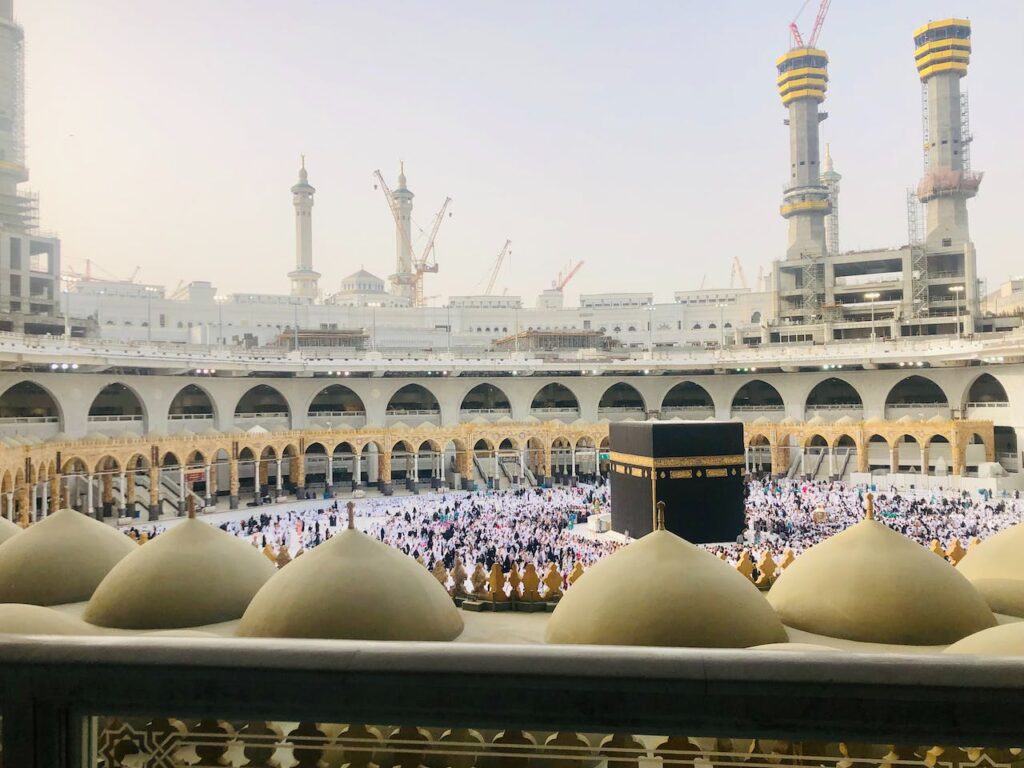Sa’i, the ritual of walking between the hills of Safa and Marwa, holds profound spiritual symbolism within the Islamic tradition. Beyond its physical aspects, Sa’i encapsulates a rich tapestry of spiritual meanings that deepen the spiritual connection of believers with Allah. This article aims to explore and unravel the spiritual symbolism behind Sa’i, shedding light on its profound significance as a sacred journey of faith.
The Historical and Scriptural Context
Sa’i finds its origins in the story of Hajar, the wife of the Prophet Ibrahim (pbuh). According to Islamic tradition, when Hajar and her infant son, Ismail (pbuh), were left in the barren valley of Mecca by Prophet Ibrahim, they faced a severe test of faith. In their desperate search for sustenance and water, Hajar ran between the hills of Safa and Marwa seven times. It was during this journey that the miraculous Zamzam well sprang forth, providing life-giving water to Hajar and her son.
What is The Spiritual Symbolism Behind Sa’i?
Sa’i represents the timeless themes of seeking and striving in the path of faith. It symbolizes the unwavering trust in Allah’s divine plan and the determination to overcome challenges through steadfastness and perseverance. Just as Hajar tirelessly searched for water, Sa’i reflects the believer’s quest for spiritual nourishment and guidance in the face of life’s trials and tribulations. It teaches us the importance of actively seeking closeness to Allah and striving for His pleasure.
The Symbolism Behind Sa’i
Sa’i embodies the timeless themes of seeking and striving in the path of faith. It symbolizes the unwavering trust in Allah’s divine plan and the determination to overcome challenges through steadfastness and perseverance.
Firstly, Unity and Equality
Sa’i holds a profound message of unity and equality. It exemplifies the notion that all believers, regardless of their status or background, are equal in the eyes of Allah. During Sa’i, Muslims from all walks of life, irrespective of their nationality, race, or social standing, come together to perform the same rituals. This communal act of worship emphasizes the importance of unity and the shared bond of faith that transcends all worldly divisions.
Secondly, Submission and Surrender
The ritual of Sa’i also signifies the principle of submission and surrender to the will of Allah. By retracing the footsteps of Hajar, believers symbolically demonstrate their willingness to submit themselves entirely to Allah’s commandments. It serves as a reminder that true faith involves surrendering one’s desires, ego, and will to the divine guidance and wisdom of Allah.
Moreover, Spiritual Cleansing and Renewal
Sa’i holds a transformative aspect that goes beyond physical exertion. It serves as a means of spiritual cleansing and renewal, purifying the heart and soul of the believer. As one traverses between Safa and Marwa, it symbolizes leaving behind worldly distractions and focusing on the spiritual journey within. It encourages introspection, repentance, and self-reflection, allowing believers to shed their burdens, seek forgiveness, and emerge spiritually rejuvenated.
Key Takeaway
- Sa’i, the ritual of walking between Safa and Marwa, holds profound spiritual symbolism within the Islamic tradition.
- It represents the themes of seeking, striving, unity, submission, and spiritual renewal.
- By understanding the historical context and the deeper meanings behind Sa’i, believers can embark on a sacred journey of faith.
- Actively seeking closeness to Allah, embracing unity, surrendering to His will, and experiencing spiritual cleansing and renewal.
- Sa’i serves as a reminder of the timeless lessons of trust, perseverance, and the equality of all believers in the sight of Allah.
Conclusion
In conclusion, Sa’i, the ritual of walking between Safa and Marwa, encompasses a profound spiritual symbolism within the Islamic tradition. It represents the themes of seeking, striving, unity, submission, and spiritual renewal. Understanding the spiritual significance behind Sa’i enriches the pilgrimage experience and deepens the connection of believers with Allah, fostering a greater sense of faith, devotion, and spiritual growth.






